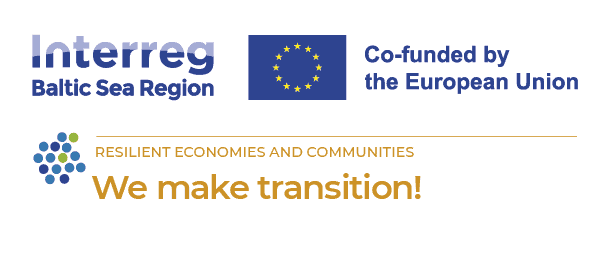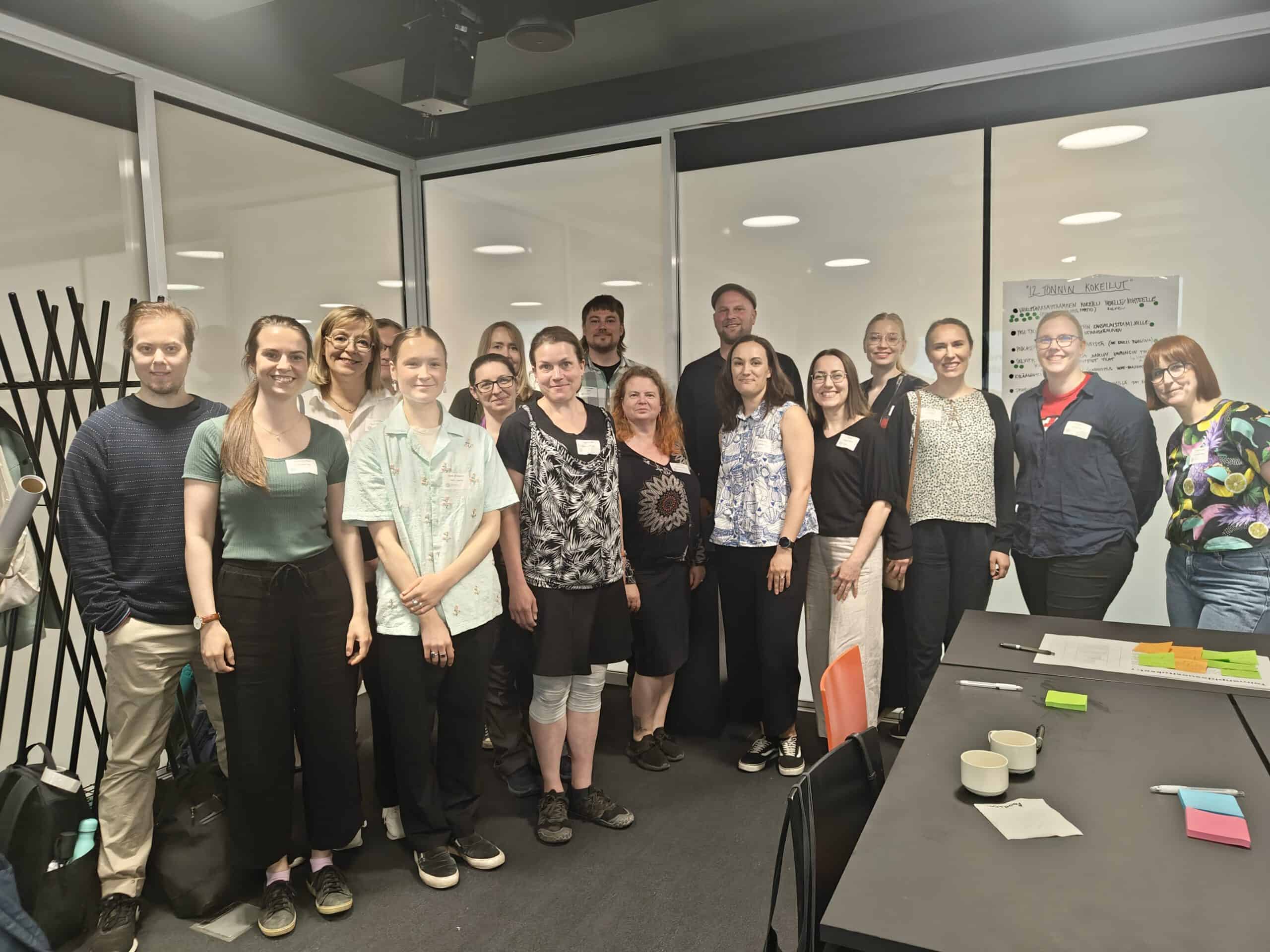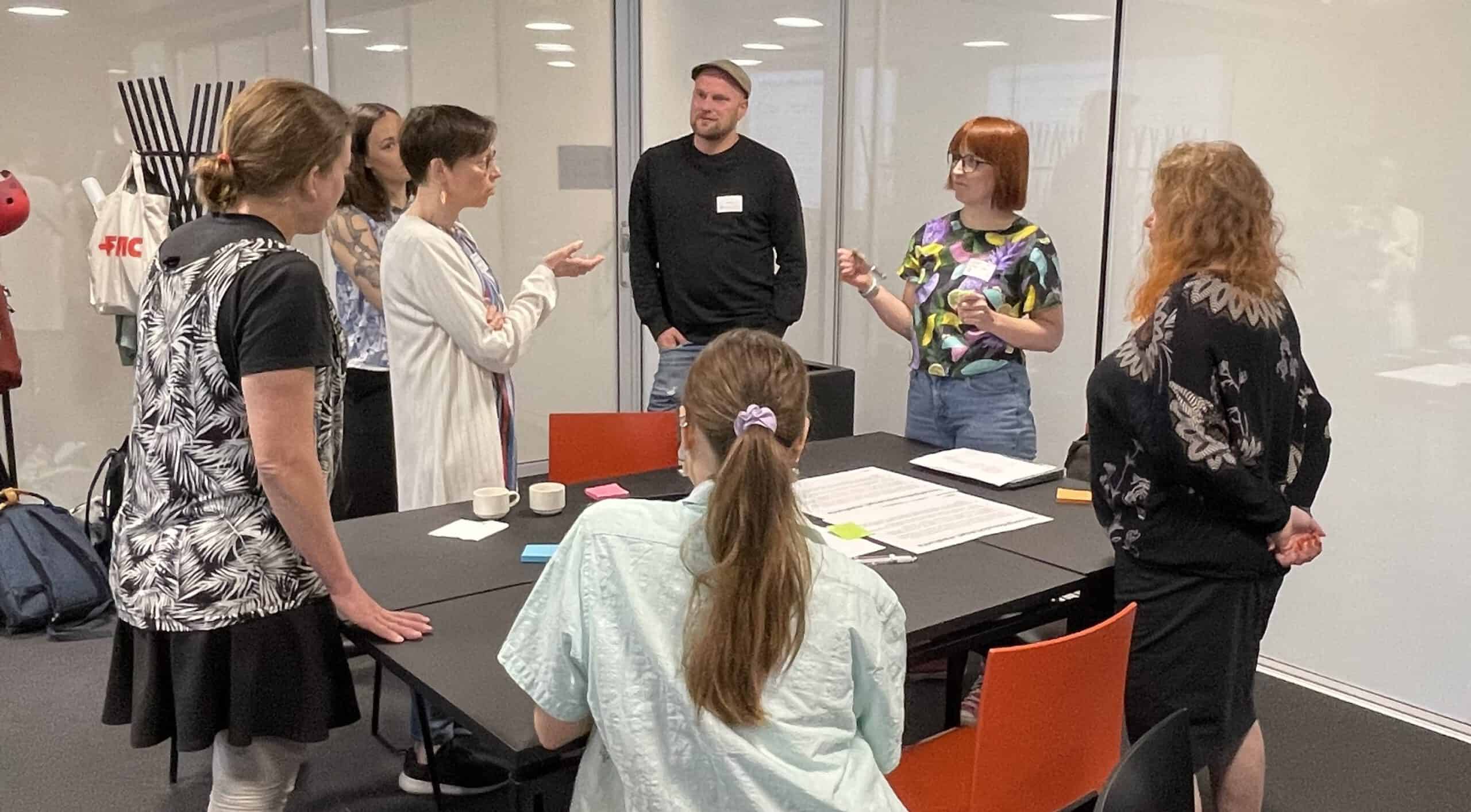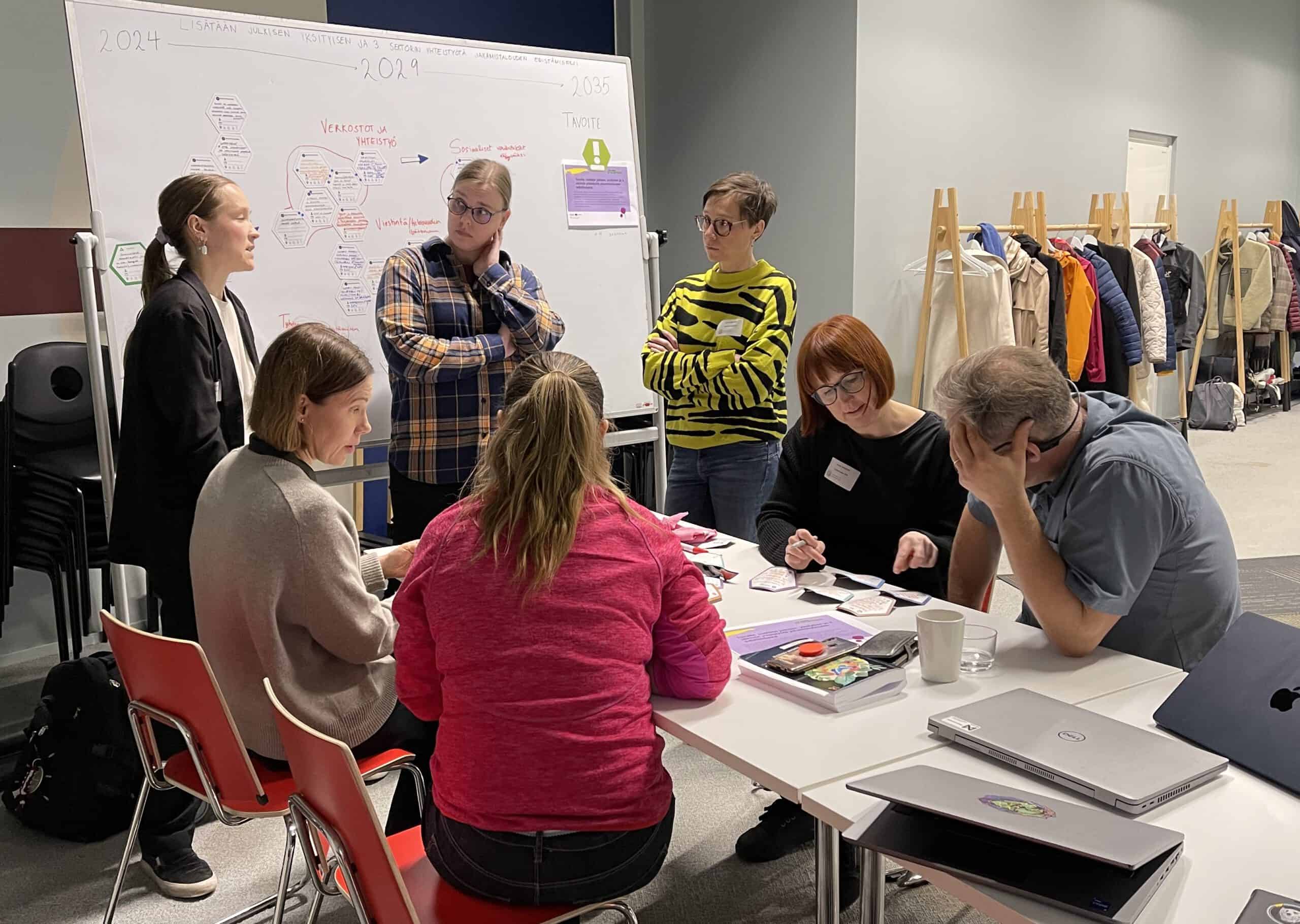
Helsinki-Uusimaa Circular Transition Arena focused on sharing economy and sustainable use of built spaces
14 October 2024
Who was involved?
Almost 30 representatives of cities from the region, regional authority, NGOs, associations, small enterprises and higher education institutions participated in the process.
Identified challenges
The following challenges were identified:
1. How to change attitudes and measure the societal impacts of sharing economy and sustainable use of buildings?
2. How to raise the lifespan of buildings and use existing built space more effectively, rather than demolish old buildings?
3. How to foster new initiatives promoting sharing economy from the grassroot level?
About the process
The transition arena process engaged civil society and small business actors in the development of Helsinki-Uusimaa region’s Circular Hub initiative. The Helsinki-Uusimaa Circular Hub forms an innovation ecosystem of expert organisations, municipalities, companies and research institutes, all working towards systemic change and new business opportunities based on a circular economy. The transition arena workshops focused especially on sharing economy and the sustainable use of built space.
In the first arena workshop, the “BSR Vision of Sustainable Life” was utilised. Participants produced concrete goals based on the vision. These were:
1) Increase collaboration between public, private, and third sector to promote sharing economy.
2) Promote diverse and sustainable use of buildings and built space
3) double the lifespan of buildings from 50 years to 100 years.
In the second workshop the participants were divided into three groups, each focusing on a specific goal. In the third workshop, action proposals were made, and participants were prompted to identify their own organisation’s role in implementing them and ideate pilots. In the end, participants voted for one pilot for immediate implementation. The transition agenda including recommendations and actions was compiled and validated with the participants by email.
Results of the process
The immediate result of the process will be the development of a social impact measurement tool that will be piloted with 1-3 NGOs. The aim of the tool is to measure the economic value of the social impact of non-profit activities. This will offer new information to local actors, local decision-makers and regional and local authorities.
The following recommendations will be shared and discussed with the cities of the region:
- The promotion of the sharing economy requires collaboration to share good practices and experiences. Detailed information, such as tips on how to set up procurement contracts for sharing economy services, is needed.
- Long-term social impact must be measured and adequately taken into account when considering the costs and benefits of sharing economy services or the use of buildings and built space.
- Civil society actors should be given the chance to contribute to the discussion on the shared use of built spaces. A stronger sense of ownership brings motivation to participate in the maintenance of one’s own living environment.
The Regional Council organises a series of events for the municipalities, civil society and innovation actors in the region to share concrete tips related to shared use of buildings.









